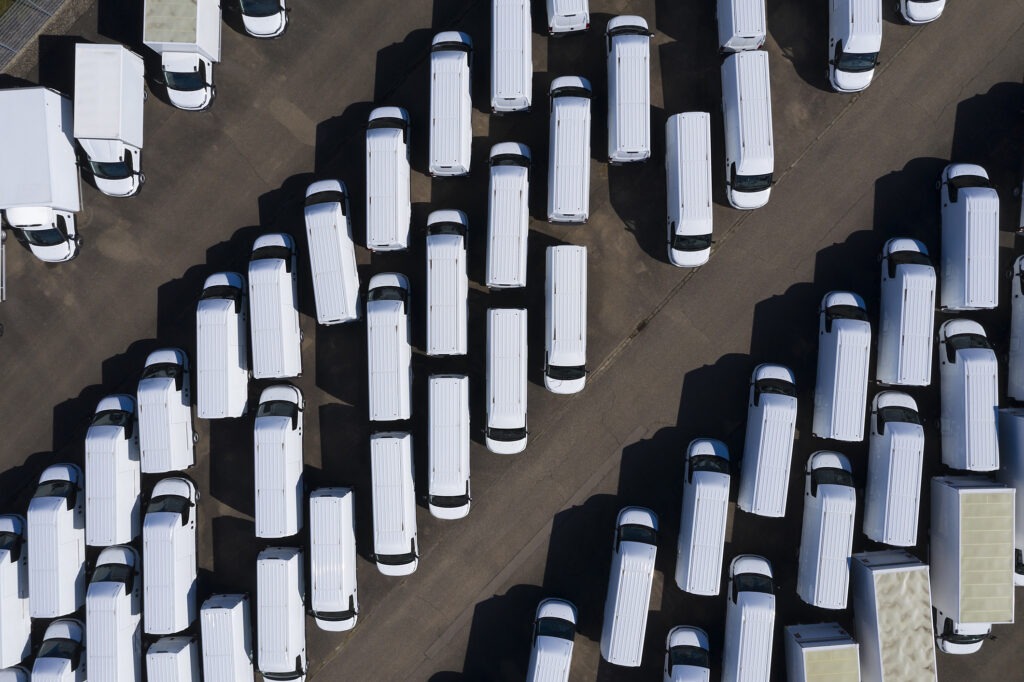German new-car market growth cannot hide overall downturn
07 November 2022

It may look encouraging that Europe’s largest automotive market has seen new-car registrations grow in the last couple of months, but Germany is still experiencing headwinds. Supply-chain issues and inflation, coupled with rising costs are disrupting the industry.
The latest data from the country’s Kraftfahrt-Bundesamt (KBA) shows that new-car registrations jumped 16.8% in October and totalled 208,642 units, up from the 14.1% growth recorded in September. Adjusted for working days, new-car registrations were up 22.6% last month.
At first glance, this seems to be an improvement, but the data is set against a low base of comparison, with the latest figures for October not meeting Autovista24’s expectations. During the first 10 months of 2022, the number of new-car registrations was down 5% year on year, falling to 2.08 million units.
The seasonally-adjusted annualised rate (SAAR) dropped from 2.77 million units in September to 2.64 million units in October. Autovista24 has revised its forecast and projects that new-car registrations will see a 4% decrease to below 2.52 million units in 2022.
Second weakest October
Meanwhile, passenger-car production in Germany increased for the sixth month in a row in October. German manufacturers produced 277,900 passenger cars, up 30% year on year. This takes the total output in Germany in the period from January to October to 2.8 million units, a jump of 10% compared to the same period last year. However, production numbers are still down 30% compared to pre-pandemic 2019.
‘After the record low in the previous year, last month was still the second weakest October in history. Even the strong growth cannot hide this fact,’ said Reinhard Zirpel, president of the association of international motor vehicle manufacturers (VDIK).
‘The level of new-car registrations is still far below the long-term average and is also supported by the reduction in order backlogs. The reluctance of customers to buy could soon cause problems for the market again, as could strained supply chains.’
German carmakers have reported supply-chain constraints, with deliveries this year expected to be on a par with 2021 for manufacturers like Volkswagen (VW) Group. Car manufacturers are also facing rising competition, not least from Chinese carmakers, as well as volatile raw-material markets, and stricter emissions-related requirements.
EVs, energy crisis, bottlenecks
Electric vehicles (EVs) continue to do well on the new-car market. In October, around 17.1% of newly registered cars were battery-electric vehicles (BEVs), with 35,781 registrations. This number was up 17% year on year.
VW Group said that Europe remained its biggest market for BEVs. Best-selling models in the region include the ID.4 and the ID.5. Recent news confirmed that the Volkswagen brand will only produce electric vehicles in Europe from 2033.
Mercedes-Benz confirmed a similar situation during its third-quarter investor presentation. It reported robust demand for electric models, as well as top-end vehicles. However, it also cautioned that customer orders are exceeding supply, which remains constrained due to semiconductor shortages and logistical bottlenecks.
The premium car brand emphasised that the energy crisis in Europe is impacting consumer sentiment, with the company remaining ‘vigilant’. Like other vehicle manufacturers, Mercedes-Benz is trying to safeguard supply chains and is eager to cut or substitute natural gas in vehicle production.
The carmaker believes a gas reduction of 50% in Germany is feasible ‘if regional pooling is possible.’ It wants to switch from gas to renewable electricity and other energy sources, with plans to build a wind farm in northern Germany that would cover more than 15% of the group’s electricity needs in the country from the middle of the decade.
Last month, energy prices in Germany were 43% higher than a year ago, significantly impacting the rate of inflation, which is forecast to have hit 10.4% in October, according to the Federal Statistical Office (Destatis).
BMW warned that high inflation rates are having a detrimental effect on consumers’ purchasing behaviour. It said its higher-than-average order books are ‘expected to normalise, especially in Europe.’
The country’s energy crisis is not just a concern for carmakers, it is also affecting suppliers. Swedish battery maker Northvolt warned that the construction of its German factory in Heide could be delayed. The company told local media that the economic viability of energy-intensive projects in Germany could be at risk, given rising electricity prices. ‘We may initially prioritise expansion in the USA over Europe,’ said Northvolt CEO Peter Carlsson.



